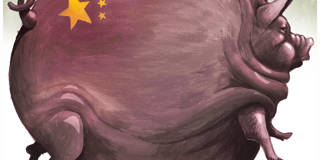The China Investment Challenge
When it comes to Chinese foreign direct investment, the US and Europe have legitimate reasons to worry about national-security issues. But, if US and EU officials cannot figure out the proper mix between economic engagement and protecting national security, Chinese investment capital will go elsewhere, leaving the US and the EU weaker, not stronger.
NEW YORK – China now sits atop $2.4 trillion in foreign-exchange reserves, the largest stockpile of any country in the world (Japan stands in second place with $1 trillion). But this bounty comes with one big headache: where should Chinese Communist Party officials park all that money?



NEW YORK – China now sits atop $2.4 trillion in foreign-exchange reserves, the largest stockpile of any country in the world (Japan stands in second place with $1 trillion). But this bounty comes with one big headache: where should Chinese Communist Party officials park all that money?